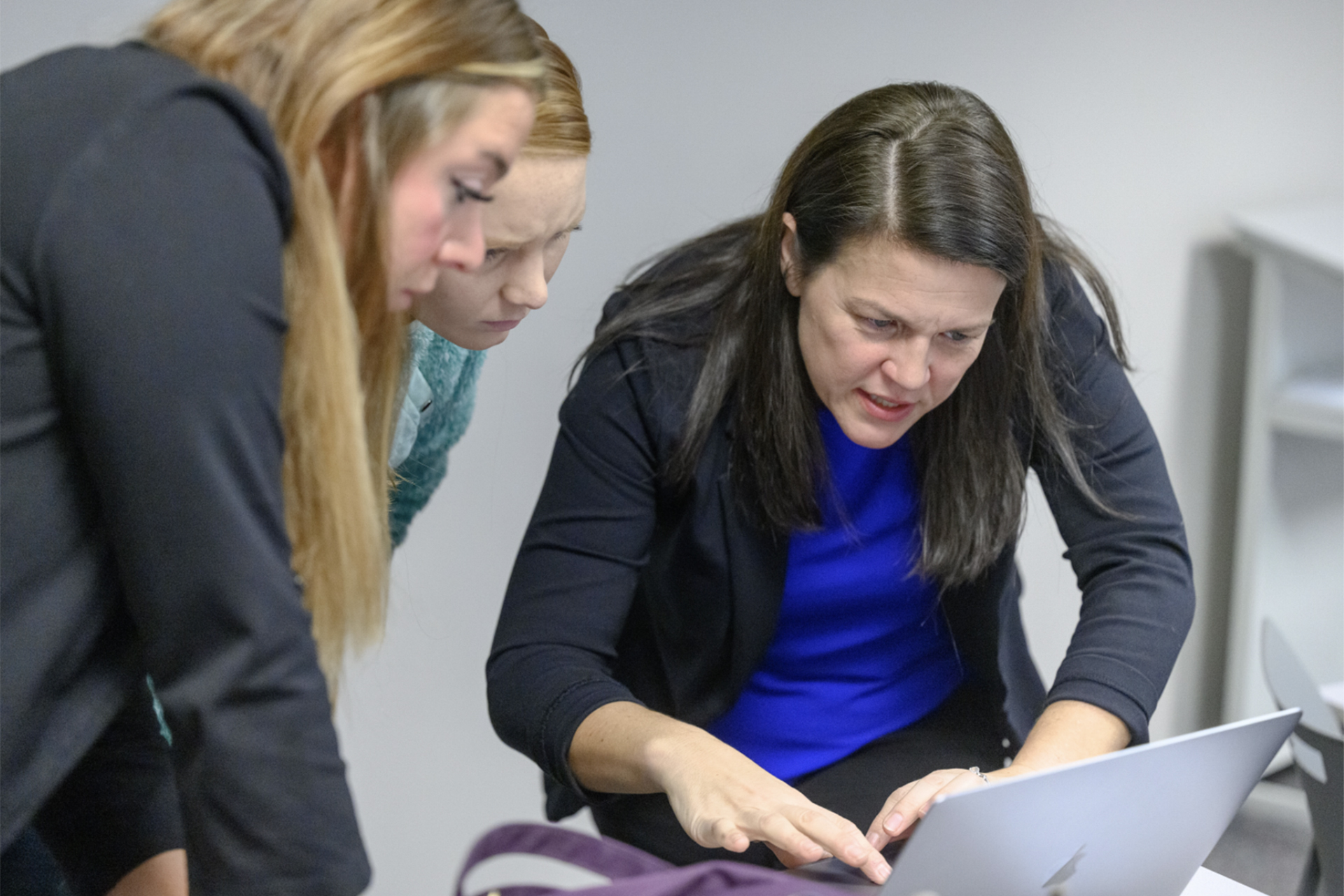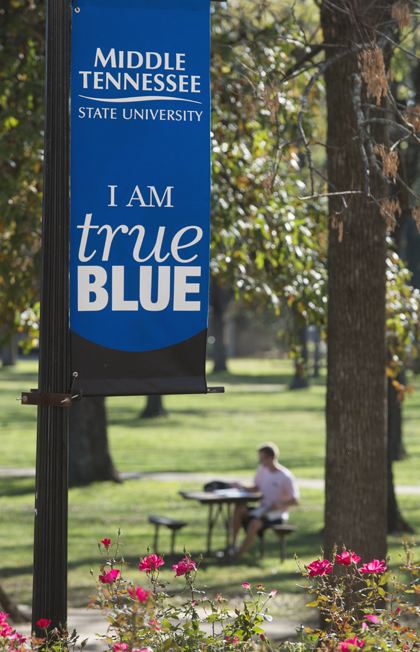
Accounting
Explore MTSU's respected Accounting program and find careers in auditing, corporate reporting, criminal investigation, tax, and more.
Accounting, B.B.A.
MTSU offers a high-quality Accounting program that is well respected in the business community, with curriculum flexibility that is tailored to students' personal career interests.
Accounting is a growing and dynamic profession offering graduates a wide variety of career options that include:
- Auditing and assurance
- Corporate reporting
- Criminal investigation
- Governmental and nonprofit accounting
- Sports and entertainment administration
- Tax consulting
MTSU graduates are recruited by more than 100 companies in the Nashville area with an average starting salary of $55,250. MTSU's Jennings A. Jones College of Business is one of only 194 business schools in the world with Association to Advance Collegiate Schools of Business (AACSB) accreditation in both accounting and business.
News Briefs

"I'm In!" Accounting Lab provides a specialized place for accounting students to study and get free tutoring
MTSU Accounting has a lab and library just for accounting tutoring and studying! The accounting lab (BAS N428) is available 9:00 AM - 4:30 PM Monday - Thursday. For current tutoring hours, go to Student Information.
The "I'm In! Accounting Lab" was made possible by a generous donation from Department of Accounting faculty member and Business Law professor Sandy Benson in memory of her late husband, who was enthusiastically up for any change, in hopes that accounting students would approach their challenges the same way.

A program recognized internationally
The Jennings A. Jones College of Business holds coveted accreditation from the Association to Advance Collegiate Schools of Business. That designation is synonymous with quality and excellence. In addition, the college's Department of Accounting recently received a reaffirmation of its supplemental accreditation from the AACSB. This is an additional departmental reaccreditation, making MTSU’s accounting program one of only 194 university accounting programs worldwide with that distinction and signifying top-drawer faculty who put teaching first.
News Briefs
"I'm In!" Accounting Lab provides a specialized place for accounting students to study and get free tutoring

MTSU Accounting has a lab and library just for accounting tutoring and studying! The accounting lab (BAS N428) is available 9:00 AM - 4:30 PM Monday - Thursday. For current tutoring hours, go to Student Information.
The "I'm In! Accounting Lab" was made possible by a generous donation from Department of Accounting faculty member and Business Law professor Sandy Benson in memory of her late husband, who was enthusiastically up for any change, in hopes that accounting students would approach their challenges the same way.
A program recognized internationally

The Jennings A. Jones College of Business holds coveted accreditation from the Association to Advance Collegiate Schools of Business. That designation is synonymous with quality and excellence. In addition, the college's Department of Accounting recently received a reaffirmation of its supplemental accreditation from the AACSB. This is an additional departmental reaccreditation, making MTSU’s accounting program one of only 194 university accounting programs worldwide with that distinction and signifying top-drawer faculty who put teaching first.
Related Media

MTSU offers a high-quality accounting program that is well respected in the business community. Many different employers visit the MTSU campus each year to recruit accounting majors, and our graduates are employed in a variety of settings. Examples include:
- Auditing
- Corporate reporting, budgeting, and analysis
- Criminal investigation, fraud, and forensics
- Governmental Accounting
- Healthcare costing
- Non-profit management
- Sports/entertainment administration
- Tax consulting
Employers of MTSU alumni include:
- Bridgestone Americas
- Country Music Foundation
- Deloitte
- EY
- FORVIS
- HCA Healthcare, Inc.
- KPMG
- Nissan Americas
- State of Tennessee
- Other local, regional, and national CPA firms
- PWC
For additional information about career opportunities in accounting, visit:




CONTACT US

Please fill in the form below and we will contact you very soon
















